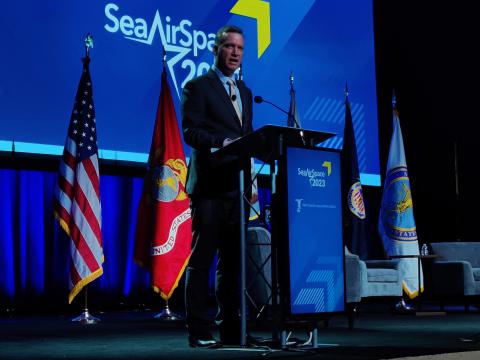It’s Culture, Not Technology, That Inhibits Cyber Information Sharing
Resistance to change may prove to be the biggest impediment to information sharing among the cyber intelligence community. Both government and industry must break out of their existing paradigms to share cyber intelligence that may prove vital to national security.
Panelists on the second day of the AFCEA Global Intelligence Forum in the National Press Club in Washington, D.C., outlined some of the cultural obstacles that hold back information sharing. In the intelligence community, the conflict is the traditional need to know versus the new need to share.
“We need to change the paradigm of how we think about things,” said Vice Adm. Michael Rogers, USN, commander, U.S. Fleet Cyber Command and commander, U.S. Tenth Fleet. “How do we educate our senior officers about how we live in this [new information sharing] world?”
Larry Zelvin, director of the National Cyber and Communications Integration Center at the Department of Homeland Security, pointed out that cybersecurity is a competitive business; not everybody is going to share. “People may not want to be as open as we think they ought to be—for some very good reasons,” he added.
Paul Tiao, a partner in the law firm of Hunton and Williams, called for leadership and a community-wide dedication to information sharing. This should include metrics for measuring the sharing that takes place. And, personal contact is important for overcoming cultural barriers “People have to sit with each other and talk with each other—not videoconference. if you want to collaborate, do more than just share information,” he suggested.
Ultimately, private sector companies are the defenders of cyberspace, Zelvin offered. “It’s not the government that will protect us, it’s the private sector.”




Comments